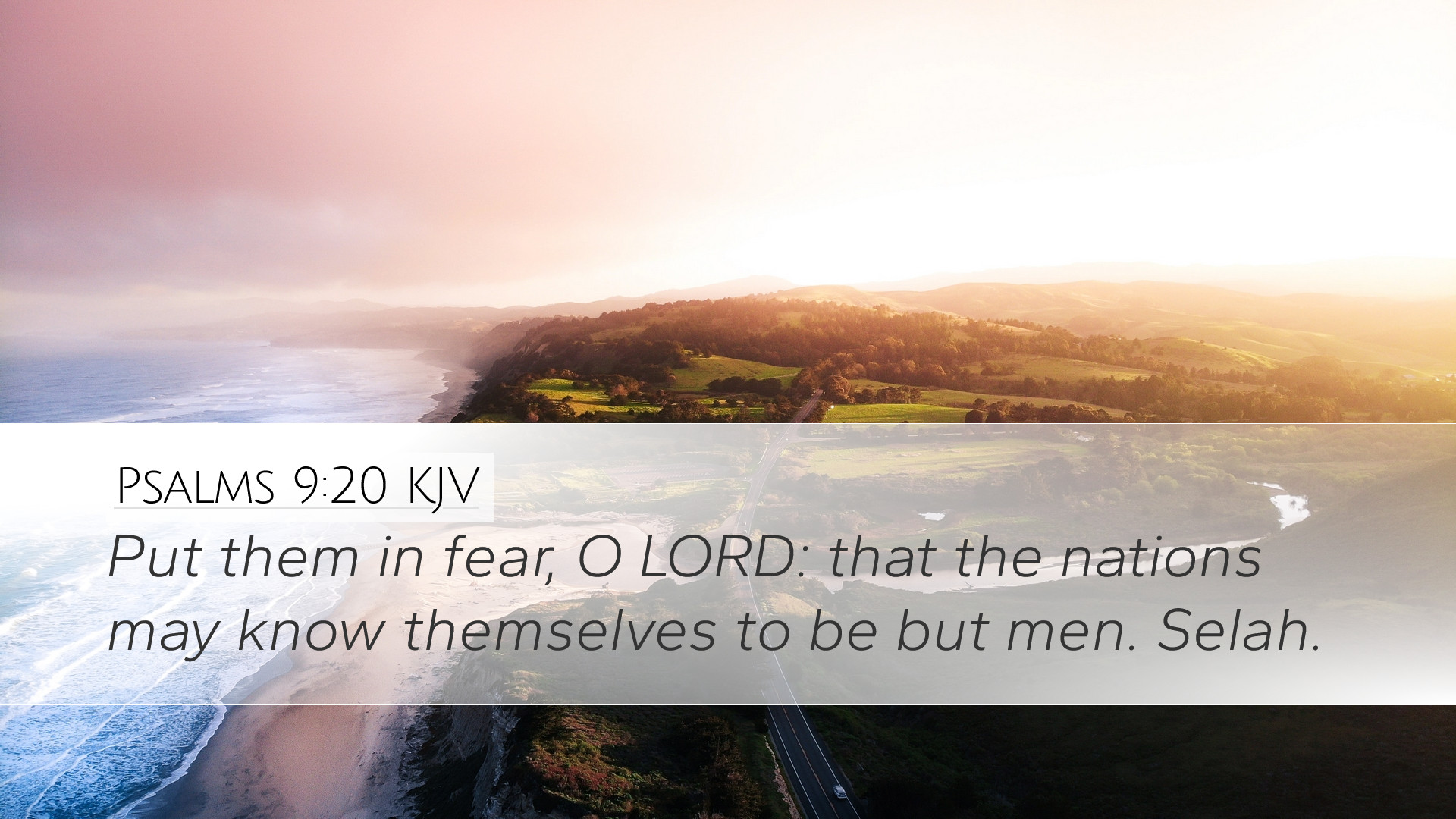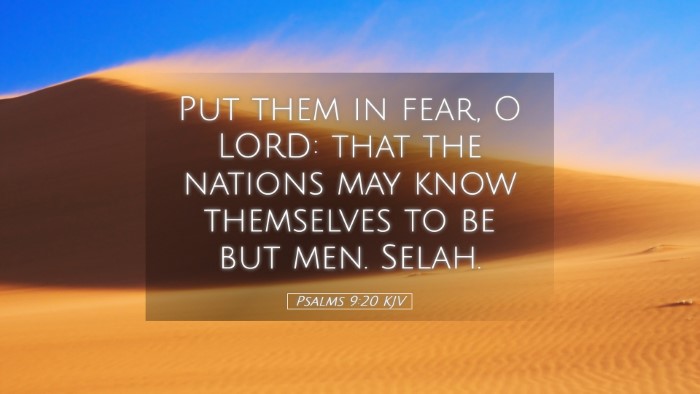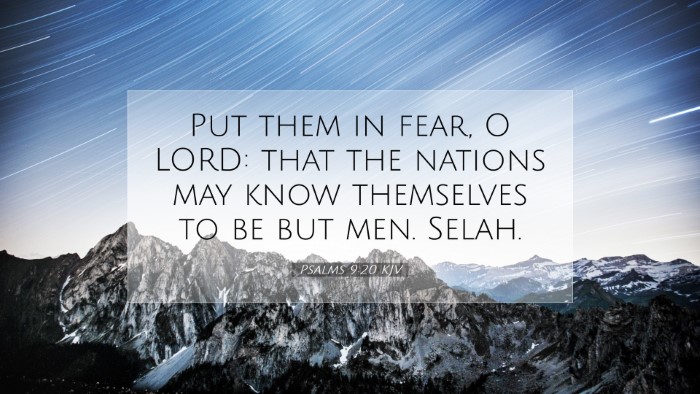Psalms 9:20 - A Commentary
Bible Verse: "Put them in fear, O Lord: that the nations may know themselves to be but men."
Introduction
This verse, Psalms 9:20, reflects a prayer for divine intervention. The psalmist, possibly David, calls upon the Lord to instill a profound sense of fear among the nations, reminding them of their human limitations. The focus on Divine authority and human frailty serves as a critical reminder for leaders and nations alike.
Contextual Analysis
The psalm is attributed to David, intended as a song of praise and supplication. It addresses God’s judgment and the justice He dispenses. Throughout the psalm, there is a clear contrast between God’s sovereignty and human arrogance. The concluding verse encapsulated in verse 20 solidifies this theme, urging nations to recognize their mortality and need for divine guidance.
Commentary Insights
Matthew Henry's Insights
Henry elucidates that the prayer encapsulated in this verse is essential for understanding God’s providence. The plea to "put them in fear" suggests that a healthy dose of reverence for God leads to humility. Henry emphasizes the importance of nations recognizing that their might is fleeting and that they are mere mortals who depend entirely on God's grace and mercy.
Albert Barnes' Perspectives
Barnes elaborates on the term “fear,” suggesting it denotes a sense of awe and reverence rather than mere terror. He notes that this acknowledgment of God's supremacy leads to wisdom (as echoed in Proverbs 9:10). Barnes highlights the significance of nations understanding their finite nature in contrast to God's infinite wisdom and power. He posits that this awareness could lead to a more just and righteous governance.
Adam Clarke's Commentary
Clarke provides a more practical view by stressing that the fear referenced is necessary not just for the nations but for humanity as a whole. He articulates that the psalmist's intent is to awaken a spiritual consciousness among people, recognizing their need for divine guidance. Clarke correlates this fear with a sense of accountability before God, which is crucial in fostering moral integrity within communities and leaders.
Theological Significance
This verse stands as a poignant reminder of the sovereignty of God in the face of human pride. The theological significance lies in the call to acknowledge God's majesty and our positioning as created beings.
Human Limitations
- Epistemological humility: Understanding that our knowledge is limited in comparison to God's infinite wisdom.
- Moral accountability: Recognizing that nations that disregard moral laws and God’s authority are bound to face consequences.
Divine Sovereignty
- God’s power over the nations: This acknowledgment serves to remind leaders that it is God who ultimately governs the course of history.
- Encouragement for the faithful: For believers, this speaks of comfort in trust—the assurance that God will act in justice.
Practical Applications for Today's Believers
This verse invites modern Christians, pastors, and scholars to reflect on several areas:
Personal Reflection
- Self-examination: How do we measure up when we consider ourselves in light of God’s greatness?
- Developing a spirit of humility: In what ways can we allow God to instill a healthy fear within us that leads to a deeper relationship with Him?
Church Leadership
- Teaching on God’s authority: How are leaders communicating the importance of divine authority in their congregations?
- Modeling humility: Leaders should exemplify the fear of the Lord in their decision-making and stewardship.
Societal Impact
- Advocating justice: Encouraging communities to uphold justice as a reflection of their acknowledgment of God’s sovereignty.
- Calling nations to accountability: Christians are called to be a voice reminding nations of their accountability to God.
Conclusion
Psalms 9:20 serves not only as a petition but also as a sobering reminder that all humanity, including nations and leaders, exist under the authority of an omnipotent God. The call to fear God can lead to profound transformations both in individual hearts and the broader society. Acknowledging this truth is essential for cultivating a life and community that reflect God's righteousness.


